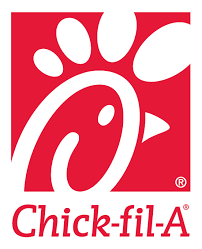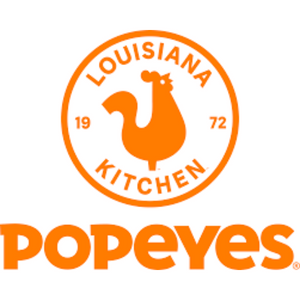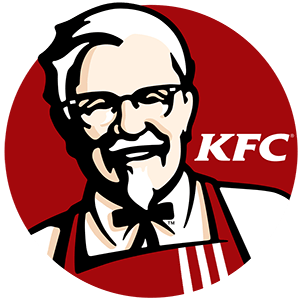Chick-fil-A Franchise in 2025: Costs, Fee & FDD
Discover the potential of owning a Chick-fil-A franchise with low initial investment, extensive corporate support, and high revenue potential. Learn about costs, earnings, and the unique franchise model that sets Chick-fil-A apart in the fast-food industry.
Table of Contents:
Chick-fil-A, founded in 1967 by S. Truett Cathy, is a leading American fast-food chain known for its exceptional service and high-quality chicken products. As a family-owned business, it operates as a quick service restaurant, providing customers with swift and friendly service. The brand originated in Hapeville, Georgia, with the first Chick-fil-A restaurant located in a shopping mall. Over the years, it has grown to become a significant player in the fast-food industry, celebrated for its customer-centric approach and commitment to community values. Chick-fil-A is particularly renowned for being closed on Sundays, a tradition that reflects Cathy’s dedication to providing employees with a day of rest and worship.
At the heart of Chick-fil-A’s menu is its iconic chicken sandwich, a simple yet delicious creation that has garnered a loyal following. The franchise also offers a variety of other chicken-based products, including nuggets, strips, and salads, catering to a diverse range of tastes. Additionally, Chick-fil-A serves breakfast items, sides, and beverages, ensuring a comprehensive dining experience. The core customer base spans families, working professionals, and students, all drawn by the promise of high-quality food and exceptional service.
Chick-fil-A has experienced substantial growth, boasting over 2,600 locations with over 2,550 being located primarily in the United States, with some international presence in Canada and the United Kingdom. The brand serves millions of customers daily, with a reputation for fast, friendly service that keeps patrons coming back. The scale and scope of Chick-fil-A’s operations highlight its successful expansion strategy and its ability to maintain consistent quality across all locations.
The franchise provides robust support to its operators, including extensive training programs that cover every aspect of restaurant management and operations. Chick-fil-A’s training emphasizes leadership development, customer service excellence, and operational efficiency. Franchisees benefit from ongoing support in marketing, supply chain management, and business growth strategies. Notably, at $10,000 Chick-fil-A has one of the lowest franchise fees in the industry, reflecting its commitment to accessible entrepreneurship, unique franchise model, and community involvement. For those seeking franchise information, Chick-fil-A’s model is particularly appealing due to its low initial investment and strong corporate backing.
Chick-fil-A Franchise Insights
- Chick-fil-A’s franchise model stands out with a royalty fee of 15% and a requirement for 50% of profits, making it one of the most expensive in the fast-food industry.
- The initial investment for a Chick-fil-A franchise is only $10,000, with the corporate office covering all setup costs, though they retain ownership of the restaurant and its equipment.
- Securing a Chick-fil-A franchise is highly competitive, with a rigorous evaluation process that accepts fewer than 1% of applicants, making it statistically harder than getting into Harvard.
- Chick-fil-A has demonstrated impressive growth, with a 3-year growth rate of 16%, consistently opening over 200 new units annually since 2021.
Chick-fil-A Franchise Key indicators
Growth YOY (%)
7%
vs industry 0%
Total investment by the franchisee to open a Chick-fil-A
$10,000
3-year Failure Rate
2%
vs industry 11%
Sales-to-Investment ratio
900:1
How much does it cost to open a Chick-fil-A franchise?
Opening a Chick-fil-A franchise is remarkably affordable compared to other fast-food franchises, requiring an initial investment of just $10,000. This low entry cost is part of Chick-fil-A’s unique franchise model, where the company covers the entire cost of setting up the restaurant, including construction, equipment, and initial inventory. However, Chick-fil-A retains ownership of the restaurant and its equipment. In return for this low upfront cost, franchisees pay a royalty fee of 15% of sales and share 50% of the profits with Chick-fil-A. Despite the high royalty and profit-sharing requirements, the low initial investment and comprehensive support make Chick-fil-A an attractive option for many aspiring franchisee
Min & Max Investment
Opening a Chick-fil-A franchise involves only the $10,000 franchise, with an additional $5,000 fee due per subsequent unit. However, potential franchisees should know that the Chick-fil-A corporate will cover all other additional initial investment costs which are outlined in Item 7 of the Franchise Disclosure Document (FDD). It is important to know this since Chick-fil-A corporate will reduce the actual profits of the unit to pay down the initial investment that Chick-fil-A corporate invests. You can see a breakdown of the costs to open a Chick’-fil-A from the most recent Item 7 below:
| Type of Expenditure | Minimum Investment | Maximum Investment |
|---|---|---|
| Initial Franchise Fee | $10,000 | $10,000 |
| Opening Inventory | $15,050 | $121,210 |
| First Month's Rental of Equipment | $750 | $5,000 |
| First Month's Lease/Sublease of Premises | $2,605 | $95,180 |
| First Month's Insurance Expense | $240 | $10,700 |
| Additional Funds | $415,598 | $2,096,696 |
| Total | $444,243 | $2,338,786 |
Item 7 in the Franchise Disclosure Document (FDD) is the “Estimated Initial Investment” section. It outlines the total costs that may be incurred when starting a franchise, including the initial franchise fee, equipment, inventory, real estate, and other startup expenses. This section is crucial because it provides potential franchisees with a detailed understanding of the financial commitment required, helping them assess affordability and plan their investment strategy effectively.
Required Capital
Chick-fil-A’s franchise model is distinct in that it does not require the franchisee to provide the capital typically needed for opening a restaurant. The initial investment is the $10,000 franchise fee, with Chick-fil-A covering the costs for real estate, construction, and equipment.
While Chick-fil-A does not publicly disclose specific requirements for liquid assets and net worth, it is estimated that prospective franchisees should have a strong financial background, reflecting their ability to manage and operate a high-volume business effectively. Generally, having a net worth of at least $1 million and liquid assets of $250,000 or more would be advantageous, although these figures are estimates based on industry standards for similar high-demand franchises.
How much does a Chick-fil-A franchise owner make?
Calculating the salary of a Chick-fil-A franchise owner involves analyzing gross sales to determine total revenue, assessing operational efficiency to understand profit margins, and accounting for franchisor fees and additional expenses such as rent, utilities, and payroll. Effective management of these factors can significantly impact the profitability and financial success of a Chick-fil-A franchise owner. This comprehensive financial analysis helps estimate net profits, from which the owner’s salary can be derived. A clear understanding of these factors ensures accurate salary projections and financial planning for sustainable business operations.
Chick-fil-A Revenue & Gross Sales
In 2023, Chick-fil-A franchises achieved a median gross sales of $9,274,890 reflecting a 7% increase from the previous year. This strong financial performance underscores the brand’s robust consumer demand and potential for lucrative returns for franchisees.
Which key factors impact the average revenue performance of Chick-fil-A franchisees?
The growth in U.S. franchisee median gross sales revenue for Chick-fil-A from 2022 to 2023 can be attributed to several key factors. Strategic initiatives such as menu innovation, including the introduction of seasonal and limited-time offerings, have helped attract new customers and retain existing ones. Additionally, Chick-fil-A’s commitment to exceptional customer service and efficiency, supported by advanced technology for mobile ordering and drive-thru optimization, has enhanced the overall customer experience. The brand’s strong market presence, combined with its effective marketing campaigns and community engagement efforts, has further solidified its reputation and increased customer loyalty. These factors, along with continued expansion into new markets, have collectively contributed to the impressive revenue growth.
Chick-fil-A Franchise Operational Costs
Operational costs for a franchise like Chick-fil-A are the ongoing expenses required to run the day-to-day operations of the business. These costs are essential for maintaining the business’s functionality and ensuring smooth operations.
If you open a Chick-fil-A franchise, you should consider several key primary ongoing operational costs:
- Royalty Fees A significant cost is the 15% royalty fee on gross sales.
- Profit Sharing You will need to share 50% of the restaurant’s profits with Chick-fil-A.
- Labor Costs Wages, benefits, and training for your staff will be substantial.
- Food and Supplies Regular expenses include purchasing high-quality ingredients and other necessary supplies.
- Utilities Costs for electricity, water, gas, and other utilities to keep the restaurant running.
- Maintenance and Repairs Regular upkeep and unexpected repairs of equipment and facilities.
- Marketing and Advertising Local marketing efforts to attract and retain customers.
- Insurance Coverage for property, liability, and workers’ compensation.
- Rent or Mortgage Payments for the physical location if not covered by the franchise agreement.
These costs are essential for maintaining the daily operations and ensuring the continued success of your Chick-fil-A franchise.
Chick-fil-A Franchise Fees
Owning a Chick-fil-A franchise is different from owning an independent, non-franchised business. All franchises tend to charge ongoing fees that franchisees are required to pay to operate. Chick-fil-A has a very unique franchise model that is worth taking into account if you want to become a franchisee. Chick-fil-A requires their franchisees to pay the below fees:
- Royalty Fee This is a monthly fee paid to Chick-fil-A, typically calculated as a percentage of gross sales. For Chick-fil-A, this fee is usually 15% of the restaurant’s monthly gross sales.
- Advertising and Marketing Fees Franchisees are required to contribute to both national and local advertising funds if Chick-fil-A charges it. However, the national advertising contribution is currently 0% of gross sales
- Additional Fees There are additional fees for business services, technology, and equipment provided by Chick-fil-A that may be applied
These ongoing fees are essential to consider when planning the financial aspects of owning and operating a Chick-fil-A franchise. They cover the costs of brand support, advertising, and ongoing operational assistance provided by Chick-fil-A.
Chick-fil-A Franchise Earnings
The earnings of a Chick-fil-A franchise owner can vary significantly based on a variety of factors including location, sales volume, operational efficiency, and cost management. However, on average, Chick-fil-A franchise owners can expect to earn a significant income.
Chick-fil-A franchisees have an average gross sales of $9,274,890. Based off of the average gross sales, we can estimate a Chick-fil-A franchisee has $473,000 in estimated earnings (EBITDA) per year before having to repay the initial investment repayment fees, assuming that the franchisee is an owner-operator in the location. If you estimate the repayment to be over $150,000 per year, this means that a franchisee must deduct the repayment plus interest, taxes, depreciation, and amortization (EBITDA) before calculating the salary. Once you do this the salary of a Chick-fil-A franchise owner of a strongly performing store is believed to be over $200,000 per year.
If the franchisee is semi-absentee, then earnings will be significantly lower based off of the costs of having a hired manager.
How to open a Chick-fil-A franchise
Becoming a Chick-fil-A franchisee involves several steps, from the initial inquiry to the start of operations. Here’s a detailed overview of the process:
- Initial Inquiry You or your franchise consultant submits an initial inquiry basic information about your interest and background.
- Application If your initial inquiry is accepted, you’ll be invited to complete a more detailed application. This application will ask for comprehensive information about your personal and professional background, financial status, and reasons for wanting to become a franchisee.
- Interview Process Successful applications lead to a series of interviews. These may include phone interviews, in-person interviews, and meetings with Chick-fil-A representatives. This stage assesses your leadership skills, business acumen, and alignment with Chick-fil-A’s values and culture.
- Background and Financial Check A thorough background check and financial review are conducted to ensure you meet Chick-fil-A’s standards for franchisees.
- Evaluation The evaluation process is rigorous and competitive, with less than 1% of applicants ultimately being selected. This phase may involve additional interviews and assessments.
- Approval If you pass all evaluations, you’ll receive approval to become a franchisee. At this stage, you’ll discuss potential locations for your restaurant.
- Training Program Before opening your restaurant, you’ll participate in an extensive training program. This training covers all aspects of operating a Chick-fil-A franchise, from daily operations to customer service and leadership skills.
- Site Selection and Build-Out Chick-fil-A’s corporate team will assist in selecting a suitable location and managing the build-out of the restaurant. They cover the costs associated with construction and equipment.
- Pre-Opening Preparation During the build-out phase, you’ll continue training and prepare for the restaurant’s launch. This includes hiring and training staff, setting up supply chains, and planning marketing strategies.
- Grand Opening: Once construction is complete and the restaurant is fully staffed and equipped, you’ll have a grand opening. Chick-fil-A provides support to ensure a successful launch.
- Ongoing Support After opening, you’ll receive ongoing support from Chick-fil-A’s corporate team, including marketing assistance, operational guidance, and regular evaluations to ensure continued success.
This comprehensive process is designed to ensure that each franchisee is well-prepared to uphold Chick-fil-A’s high standards and deliver exceptional service to customers.
Pros & Cons
Pros:
Low Initial Investment: The franchise fee is only $10,000, significantly lower than many other fast-food franchises.
Strong Brand Recognition: Chick-fil-A has a well-established brand known for quality food and exceptional customer service, attracting a loyal customer base.
Corporate Support: Chick-fil-A provides extensive training and ongoing support, including marketing, operations, and supply chain management.
High Revenue Potential: Chick-fil-A franchises often generate high sales volumes, reflecting the brand’s strong market presence and customer loyalty.
Community Focus: Chick-fil-A places a strong emphasis on community involvement and charitable initiatives, enhancing its reputation and customer goodwill.
Operational Efficiency: The company’s focus on efficiency and service excellence helps maintain high customer satisfaction and repeat business.
Cons:
High Royalty Fees and Profit Sharing: Franchisees must pay 15% of gross sales and share 50% of profits with Chick-fil-A, which is higher than many other franchises.
Limited Ownership: Chick-fil-A retains ownership of the restaurant and its equipment, giving franchisees less control over their investment.
Intensive Selection Process: The process to become a franchisee is highly competitive, with less than 1% of applicants accepted, making it difficult to secure a franchise.
Operational Restrictions: Chick-fil-A has strict operational guidelines and standards, which can limit franchisees’ flexibility in running their business.
Closed on Sundays: While this reflects the company’s values, being closed on Sundays means one less day of potential revenue compared to competitors.
Geographical Limitations: Franchise opportunities may be limited in certain areas, depending on market saturation and corporate strategy.
Weighing these pros and cons can help you determine if a Chick-fil-A franchise aligns with your financial goals, business preferences, and values.





